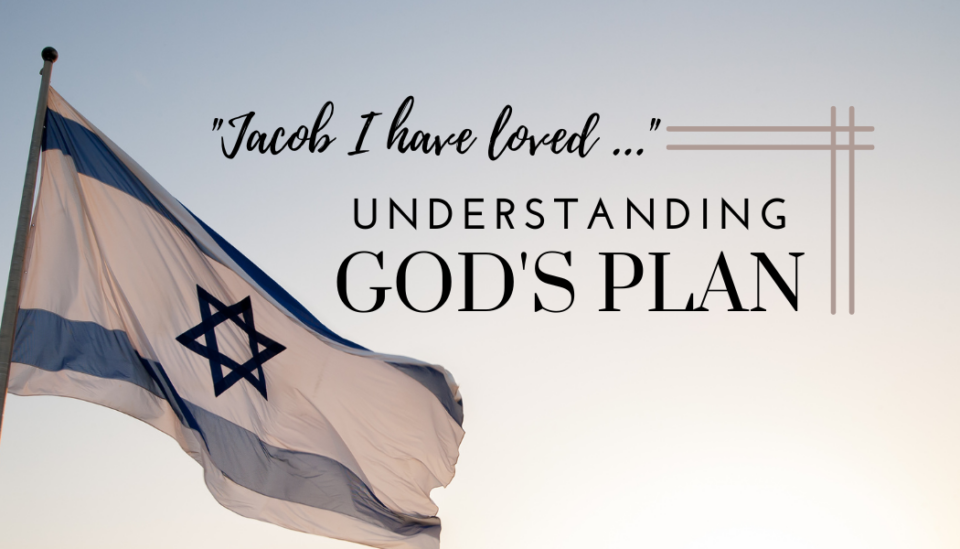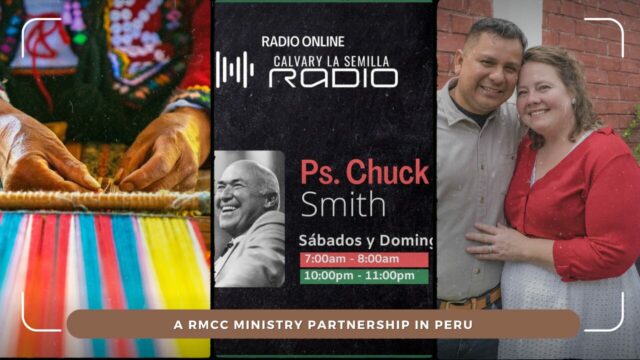
Taste and See God’s Goodness: The Jackson Willms Story
As I glanced out the front window and watched Jackson Willms and his care aide make their way up the...
Join us online at 9:00 am and 11:00 am Watch Online

The burden of the word of the LORD to Israel by Malachi. “I have loved you,” says the LORD. “Yet you say, ‘In what way have You loved us?’ Was not Esau Jacob’s brother?” Says the LORD. “Yet Jacob I have loved; but Esau I have hated, and laid waste his mountains and his heritage for the jackals of the wilderness (Malachi 1:1-3, NKJV).”
Have you ever wondered what God meant when He said, “Jacob I have loved, but Esau I have hated?” Considering John 3:16, which tells us that God so loved the world that He gave His only begotten Son, what do we make of the passage in Malachi chapter one? Did God really hate Esau?
For every question we have about the Bible, context is everything! So, let’s look at the context of this passage.
The goal of Malachi was to help the Jewish people appreciate that they are God’s chosen people and as such they should receive His love, follow Him, and be very hopeful that the future will bring great peace and prosperity in the coming of a third temple period—what we call the Millennial Kingdom.
The words ‘love’ and ‘hate’ are very strong and meant to bring the Jewish readers of Malachi to a knowledge of the fact that God has had a unique and special relationship with the children of Jacob, and He intends to maintain that relationship. In referencing Esau, the Lord is saying that there are consequences for rejecting God.
Fast forward to new covenant times and specifically the age we are living in now. How do we interpret Malachi 1:1-3 in light of the grace of God and the church age? Does God still love Jacob?
The answer is a definite yes! As Paul wrote in Romans 11:2, “God has not cast away His people whom He foreknew (NKJV).”
When Paul says He ‘foreknew’ them, he is saying that God had plans for this people group and those plans have not—and will not—change.
Where does that leave the children of Esau?
This brings us back to John 3:16 and the good news that all people are loved by God and invited to receive His love by trusting in the work of His Son on the cross. The good news is those who choose to receive His love will never lose His love.
Does that mean God only sees people in either the saved or unsaved category? This question is what Paul wrestled with in Romans 9, 10, and 11. The short answer is yes. God sees us in one of two categories: saved or unsaved.
The longer answer is that there is still a plan for the Jewish people—as a people group—and this is what Paul meant when he said that “blindness in part has happened to Israel until the fullness of the Gentiles has come in (Romans 11:25, NKJV).”
Paul goes on to say, “All Israel will be saved!” He quotes Isaiah 59:20-21, concluding with the statement that “the gifts and calling of God are irrevocable (Romans 11:29),” which is an emphatic way of saying God loves Jacob and has plans for this people group whom He created going back to Abraham, Isaac, and Jacob.
God loves Jacob and, in some ways, understanding the fullness of what that means is past finding out (Romans 11:33), but that doesn’t excuse us Gentile believers from loving the children of Jacob, including praying for the peace of Jerusalem and the salvation of the children of Jacob.
God loves Jacob and His love for them is as real today as it was when He made a covenant with Abraham, reinforced it with Jacob, and emphasized it through His prophets, including Malachi and the Apostle Paul.
So, what is the conclusion of the matter? God loves Jacob and, therefore, we Gentile believers should choose to love the children of Jacob and the nation of Israel. As we read in Psalm 122:6, “Pray for the peace of Jerusalem: ‘May they prosper who love you (NKJV).”
As members of RMCC, we are blessed to be under a pastor (Pastor Glen) who is not ignorant of the mystery of God’s love for Israel, but instead has a great love for Israel, the children of Jacob, and God’s ultimate plan for His people for which all of us who love God can say, “Thank you Father; to You belongs all glory forever (Romans 11:36)!”

As I glanced out the front window and watched Jackson Willms and his care aide make their way up the...

Several years ago, Pastor Blair Butterfield was at a pastors’ conference in Lima, Peru where he bumped into a man...

The world tells us we can do it all. Try hard enough, work enough hours, do all the right things...